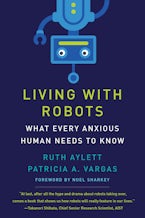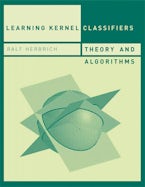Genetic algorithms (GAs) are of increasing interest, both as computational models of natural systems and as algorithmic techniques for problem-solving. This text fills an important role for student interested in Gas for either reason. It coverage of recent, theoretical GA work also helps to build a common foundation for the biologists and computer scientists intrigued by what Gas have to offer.
Richard K. Belew, Associate Professor, Computer Science & Engineering Department, University of California, San Diego
Melanie Mitchell has written an outstanding—and needed—new text for the burgeoning field for genetic algorithms. The book combines a clear explanation of GA basics and implementation, penetrating discussions of 15 of the most significant recent GA researches in problem solving and scientific modelling, and the first major review of GA theory from Holland's original concepts to recent advances and controversies. There are over 200 references. Mitchell's work is sure to become the field's new standard source and text.
Stewart W. Wilson, The Rowland Institute for Science
This is the best general book on Genetic algorithms written to date. It covers background, history, and motivation; it selects important, informative examples of applications and discusses the use of Genetic algorithms in scientific models; and it gives a good account of the status of the theory of Genetic algorithms. Best of all the book presents its material in clear, straightforward, felicitous prose, accessible to anyone with a college-level scientific background. If you want a broad, solid understanding of Genetic algorithms—where they came from, what's being done with them, and where they are going—this is the book.
John H. Holland, Professor, Computer Science and Engineering,and Professor of Psychology, The University of Michigan; External Professor, the Santa Fe Institute
Melanie Mitchell has written an excellent introduction to genetic algorithms, one of the most promising branches of machine learning. GAs, with their minimal demands on the programmer together with heavy exploitation of computing cycles, and uniquely well-positioned to take advantage of the vastly increased availability of computer cycles made covering both traditional GA methods and the recent wealth of GA variants, and also providing details on GA implementation, theoretical foundations, and scientific applications.
David L. Waltz, NEC Research Institute and Brandeis University
Melanie Mitchel has successfully assembled a collection of recent applications that convey the excitement and potential of genetic algorithms in solving an array of otherwise difficult or intractable problems.
John R. Koza, Consulting Professor, Computer Science Department, Stanford University
An outstanding introduction to a new and important field of computer science.
Tim Watson
The Computer Journal
This is a useful introduction to the subject and is well worth reading as an entry into evolutionary computing.
Chris Robbins
Computing
This is the best general book on Genetic algorithms written to date. It covers background, history, and motivation; it selects important, informative examples of applications and discusses the use of Genetic Algorithms in scientific models; and it gives a good account of the status of the theory of Genetic Algorithms. Best of all the book presents its material in clear, straightforward, felicitous prose, accessible to anyone with a college-level scientific background. If you want a broad, solid understanding of Genetic Algorithms—where they came from, what's being done with them, and where they are going—this is the book.
John H. Holland, Professor, Computer Science and Engineering,and Professor of Psychology, The University of Michigan; External Professor, the Santa Fe Institute












